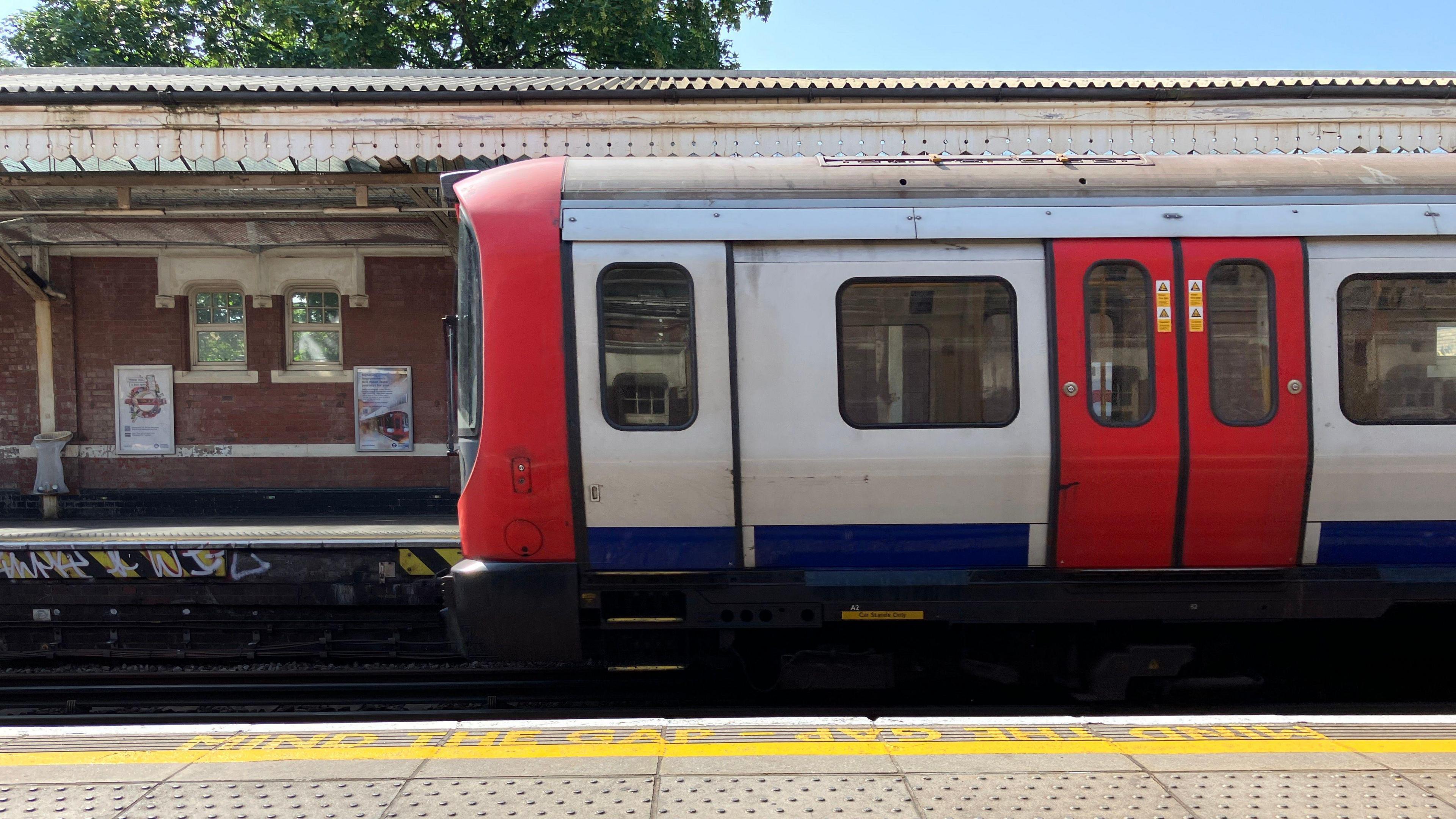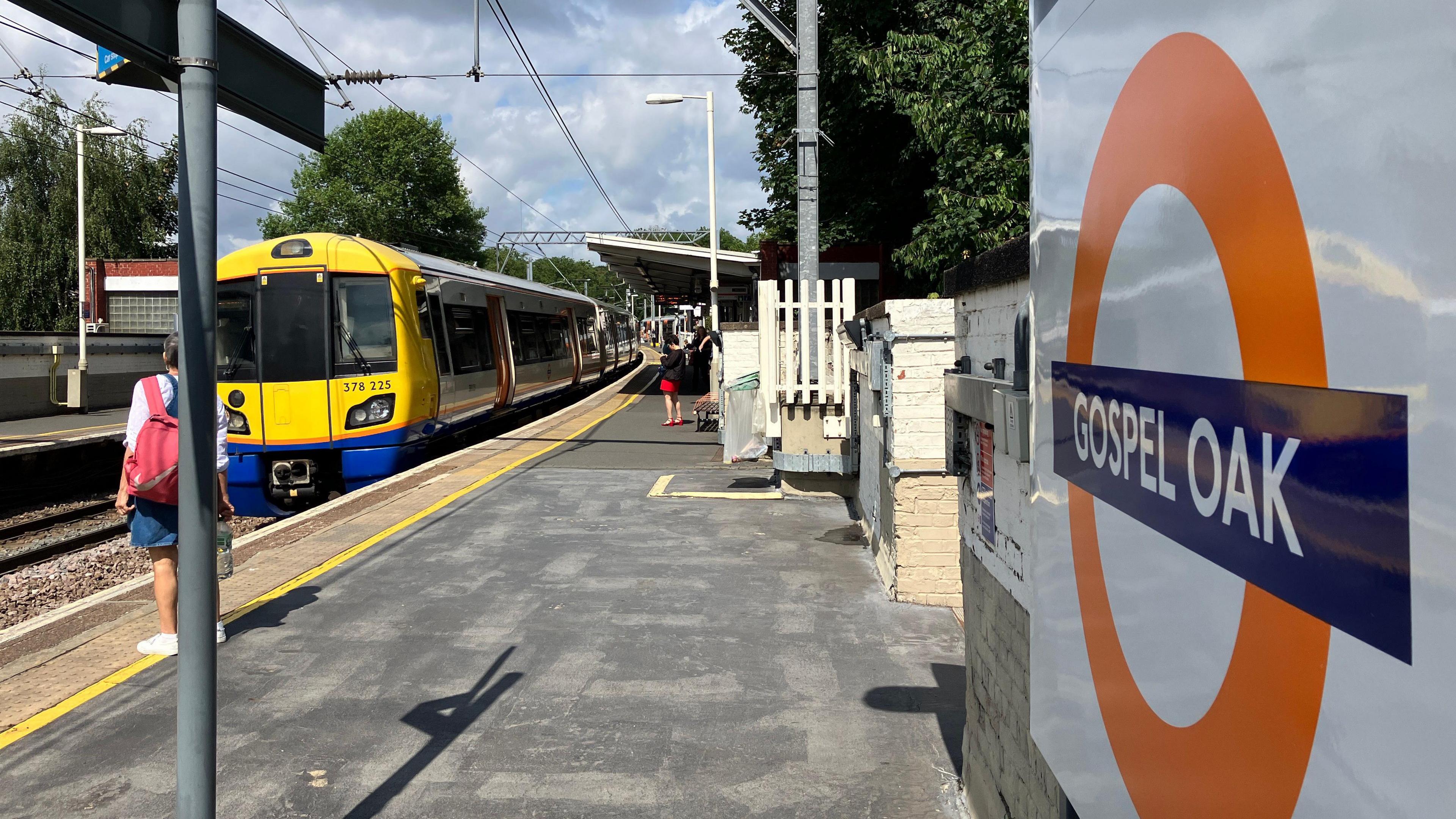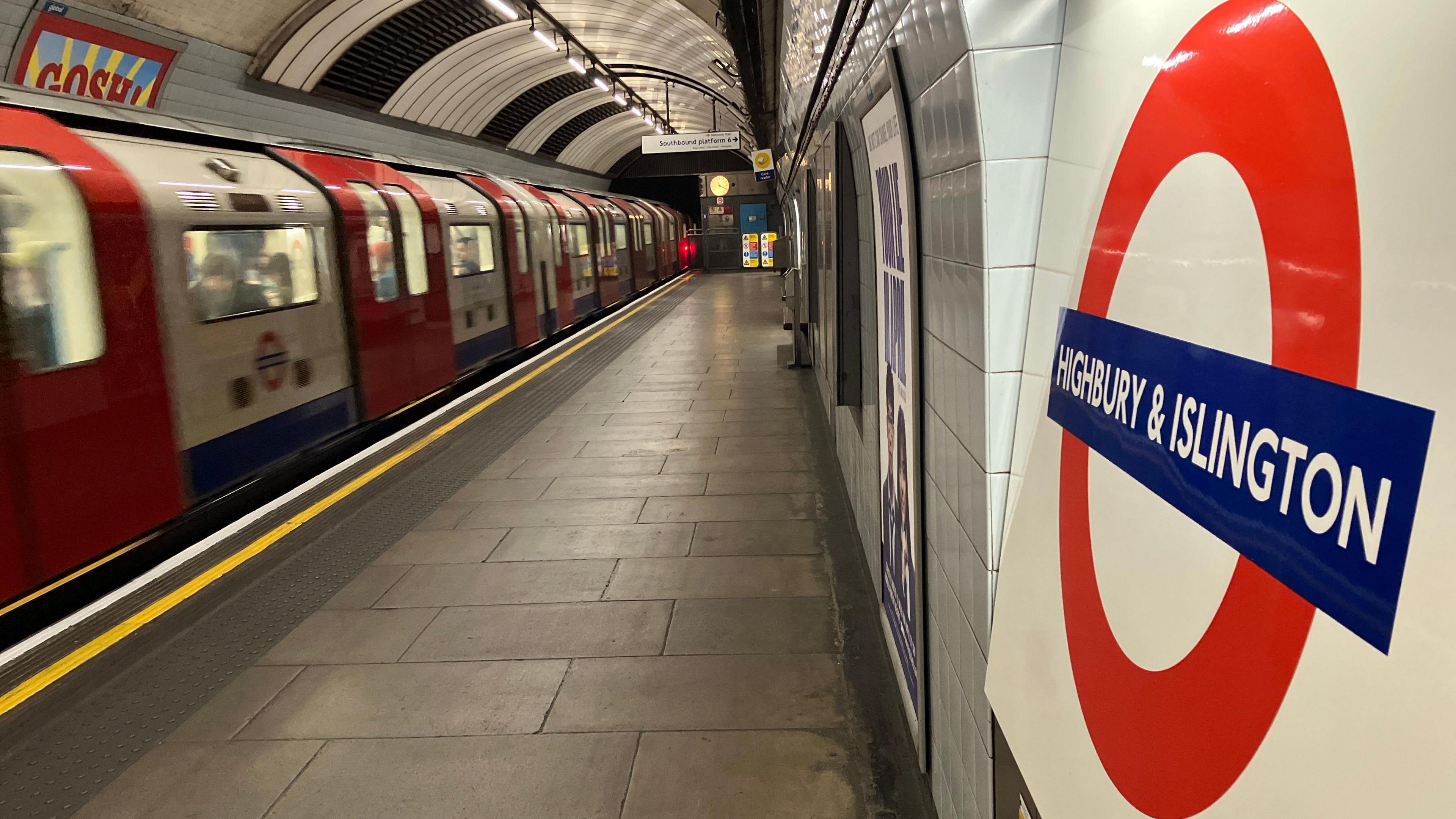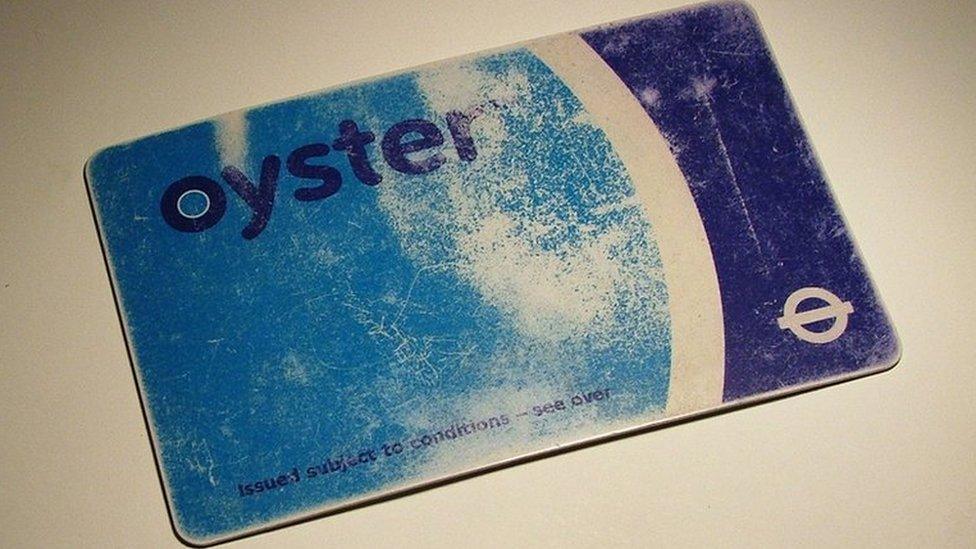Campaign calls for free public transport in London

Most of TfL's revenue comes from fares
- Published
Londoners need free public transport to reduce inequality and get polluting cars off the road, Transport for London (TfL) has been told.
The capital's Tube network is already considered the most expensive of any major global city, with fares set to rise by above inflation until 2030.
This has prompted concerns that ordinary Londoners are avoiding Tube travel due to soaring costs, potentially increasing the number of vehicles on the road.
TfL says it is mostly funded by passenger fares, compared with other countries which receive larger subsidies from central government.
'Complete rethink'
The removal of passenger fares would require billions of pounds to be found from elsewhere.
TfL made £5.24bn from passenger fares in 2023-24, and is expected to take in £5.7bn in 2025-26.
The transport body got £1.6bn in income from advertising and the Ulez scheme, as well as £2.7bn in government grants in 2024-25.
A single Tube journey in London costs from £2.50 to £3.80 using Oyster or contactless, depending on the travel zone and whether it is at a peak or off-peak time.
Tube fares are capped at £8.90 a day for zone 1 and £16.30 a day for zones 1 to 6, with a weekly cap of £81.60.
Cash is not accepted on London's buses or trams, where fares start at £1.75 and are capped at £5.25 a day for adults.
Earlier this month, the House of Commons Transport Committee proposed that everyone aged under 22 in England should be given a free bus pass to help them get into work and education.
Campaigners, including Fare Free London, are urging regional authorities and the national government to extend this proposal to all age groups on all forms of public transport.
The group says that a complete restructure of TfL is needed but that capital cities like Tallinn in Estonia and Belgrade in Serbia have shown it is possible.

London Overground fares rose 4.6% in March
Simon Pirani, who sits on the organising group of Fare Free London, said free public transport in London would stimulate the economy, reduce inequality and social isolation, and assist with reducing car usage.
He said: "In London, the high level of fares is hitting people across all age groups in terms of being able to travel to find work, travelling to and from work and in terms of social isolation.
"We need a complete rethink about how the transport system is paid for.
"London has a much better transport system compared to other UK cities, but it's very expensive.
Groups including those aged over 60, children under 18, students, disabled people and jobseekers are eligible for discounted public transport.
A TfL spokesperson said: "The mayor will set out what happens with fares but the government has been clear that the funding in the settlement is provided against an assumed scenario that overall TfL fares will rise by the value of RPI+1% for each year of the settlement."
Listen to the best of BBC Radio London on Sounds and follow BBC London on Facebook, external, X, external and Instagram, external. Send your story ideas to hello.bbclondon@bbc.co.uk, external
- Published22 February

- Published14 July

- Published10 September 2021
